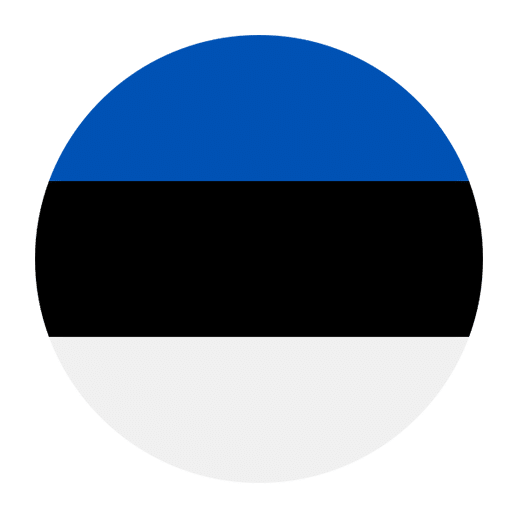Learning a new language often involves getting acquainted with common words and phrases used in everyday conversations. Understanding how to describe relationships is an essential part of mastering any language. In this article, we will explore common Estonian words for describing relationships. These words are not only useful in personal conversations but also enhance your overall understanding of the Estonian language and culture.
Family Relationships
Family is the cornerstone of many cultures, and Estonia is no exception. Here are some essential Estonian words to describe family relationships:
– Isa – Father
– Ema – Mother
– Vanaisa – Grandfather
– Vanaema – Grandmother
– Poeg – Son
– Tütar – Daughter
– Vend – Brother
– Õde – Sister
– Onu – Uncle
– Tädi – Aunt
– Õepoeg – Nephew (sister’s son)
– Õetütar – Niece (sister’s daughter)
– Vennapoeg – Nephew (brother’s son)
– Vennatütar – Niece (brother’s daughter)
Understanding these terms will allow you to discuss your family and understand conversations about others’ families.
Romantic Relationships
Romantic relationships are another crucial aspect of human interaction. Here are some common Estonian words related to romantic relationships:
– Poiss-sõber – Boyfriend
– Tüdruk-sõber – Girlfriend
– Abikaasa – Spouse (can refer to both husband and wife)
– Naine – Wife
– Mees – Husband
– Kihlatu – Fiancé (can refer to both male and female)
– Kihluma – To get engaged
– Armastus – Love
– Suhe – Relationship
– Kohtama – To date
– Suudlema – To kiss
– Abielluma – To get married
Using these terms can help you navigate conversations about romantic relationships, whether you’re talking about your own experiences or listening to others.
Friendships
Friendships form an essential part of our social lives. Here are some useful Estonian words to describe friendships:
– Sõber – Friend (male)
– Sõbranna – Friend (female)
– Parim sõber – Best friend
– Hea sõber – Good friend
– Seltsimees – Comrade
– Tuttav – Acquaintance
– Uus sõber – New friend
– Lapsepõlve sõber – Childhood friend
Understanding these words will help you talk about different types of friendships and describe your relationships with various people.
Professional Relationships
Professional relationships are important in the workplace and other formal settings. Here are some common Estonian words related to professional relationships:
– Ülemus – Boss
– Kolleeg – Colleague
– Alluv – Subordinate
– Partner – Partner (in business)
– Klient – Client
– Juht – Leader
– Mentor – Mentor
– Praktikant – Intern
These terms will help you navigate professional environments and describe your relationships with colleagues and other professionals.
Other Important Relationship Words
Beyond the categories mentioned above, there are other useful Estonian words that describe various aspects of relationships:
– Naaber – Neighbor
– Vaenlane – Enemy
– Rivaal – Rival
– Kaaslane – Companion
– Koostööpartner – Collaborator
– Üksik – Single
– Lesk – Widow/Widower
These additional terms will help you describe a wider range of relationships and social interactions.
Common Phrases Involving Relationship Words
To put these words into context, here are some common Estonian phrases involving relationship words:
– Mul on kaks venda ja üks õde – I have two brothers and one sister.
– Ta on minu parim sõber – He/She is my best friend.
– Me oleme kihlatud – We are engaged.
– Minu ülemus on väga toetav – My boss is very supportive.
– Tutvusin oma naabriga eile – I met my neighbor yesterday.
– Kas teil on lapsi? – Do you have children?
– Ta on minu lapsepõlve sõber – He/She is my childhood friend.
– Ma töötan koos oma kolleegidega – I work with my colleagues.
These phrases will help you use the relationship words you’ve learned in real-life conversations.
Cultural Context
Understanding the cultural context is crucial when learning a new language. In Estonia, family and community play significant roles in people’s lives. Estonians value both their immediate family members and extended family, and they often maintain close relationships with their friends and colleagues.
In romantic relationships, Estonians can be reserved initially but are deeply committed once they form a bond. Friendships are also highly valued, and it’s not uncommon for Estonians to have lifelong friends from childhood.
Professional relationships in Estonia are typically formal, especially in the beginning. However, once a level of trust and familiarity is established, these relationships can become more relaxed and personal.
Conclusion
Learning common Estonian words for describing relationships is a valuable step in mastering the language. Whether you are talking about family, romantic relationships, friendships, or professional interactions, these words will help you communicate more effectively.
Remember, practice is key. Try using these words in sentences and conversations to become more comfortable with them. As you continue to learn and use the Estonian language, you will find that your understanding of both the language and the culture deepens, making your communication more natural and meaningful.
Happy learning!

